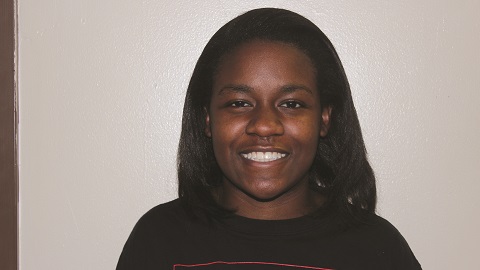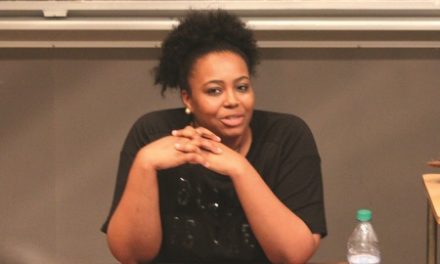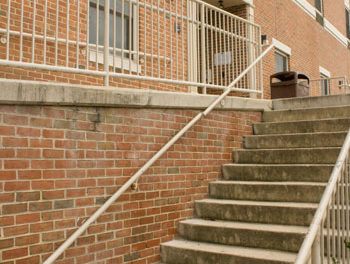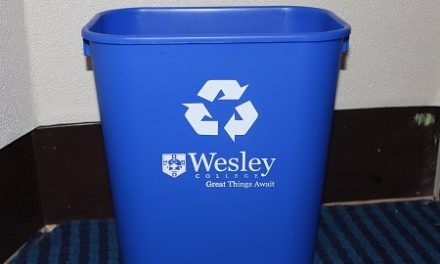
Kristen Griffith
By Kristen Griffith (Whetstone Staff Writer)
Seventh grade was my first time attending a predominately-black school. It’s where I learned that being “black†is more than having brown skin.
Apparently, it was a life that didn’t 100 percent apply to me.
Despite my appearance, I’ve been taunted, criticized and judged for not acting “black.â€
At John Hanson Middle School, you were either black or white. The black kids had certain requirements to fulfill, like fashion, behavior and speech.
I spent my previous school years wearing uniforms, so I was slow to discover which clothing brands were accepted. Since I didn’t realize how important it was for each piece of clothing to match by color and label, I paid the price – mockery and name-calling, which scarred me to ever wear certain outfits again.
I was extremely shy, quiet and innocent, so my new name became “goodie two-shoes.†After a few lectures from my Pre-Algebra teacher for talking and laughing in class, I was awarded the name “Good Girl Gone Bad,†(the name of Rihanna’s latest album at the time).
If I wanted to fully understand what my black classmates were talking about, I had to learn the latest slang. And if I didn’t want to be called white, I had to learn to speak it as well.
By the time I reached high school, I thought I mastered Blackness 101. But certain characteristics of mine still earned me names like Oreo (black on the outside, white on the inside), or comments like, “the blackest white girl I’ve ever met.†Even white people claimed they were “blacker†than me, as if that meant they were better.
It was embedded in me that being “black†was better than being myself. I thought my skin color determined what type of person I should be. I made it my mission in middle and high school to prove I was “black†so I could be claimed as such, and not be called anything else. I even hypocritically teased my own black friends for not living up to the stereotypes I was chasing after.
Pretending to be something I wasn’t was a task I wanted to quit by my freshmen year of college. The idea of me proving the color of my skin to people who clearly weren’t blind became ridiculous. I knew who I was, and I didn’t need anyone’s approval because I understood that stereotypes aren’t guidelines on how to act.
Black people are not defined by their characteristics; we’re a diverse group of people with many different personalities. I’m proud to be part of this minority, and I’d like to be recognized as such. Just because I don’t fit into certain stereotypes, doesn’t mean I am any less part of that.




